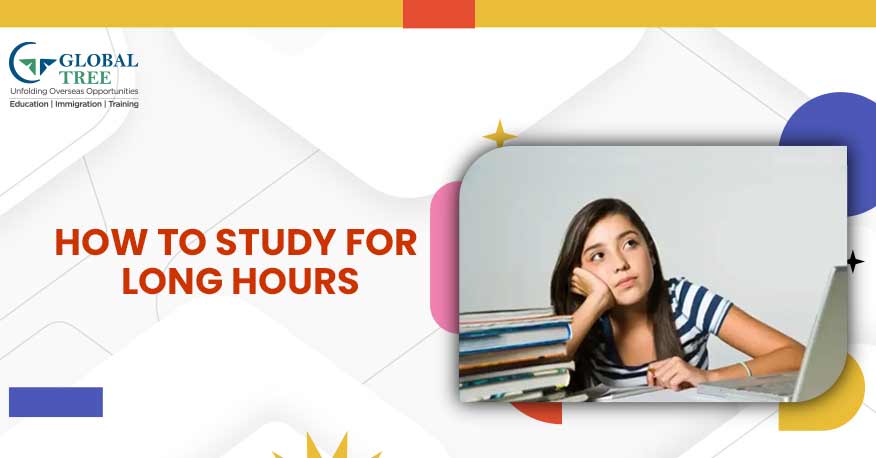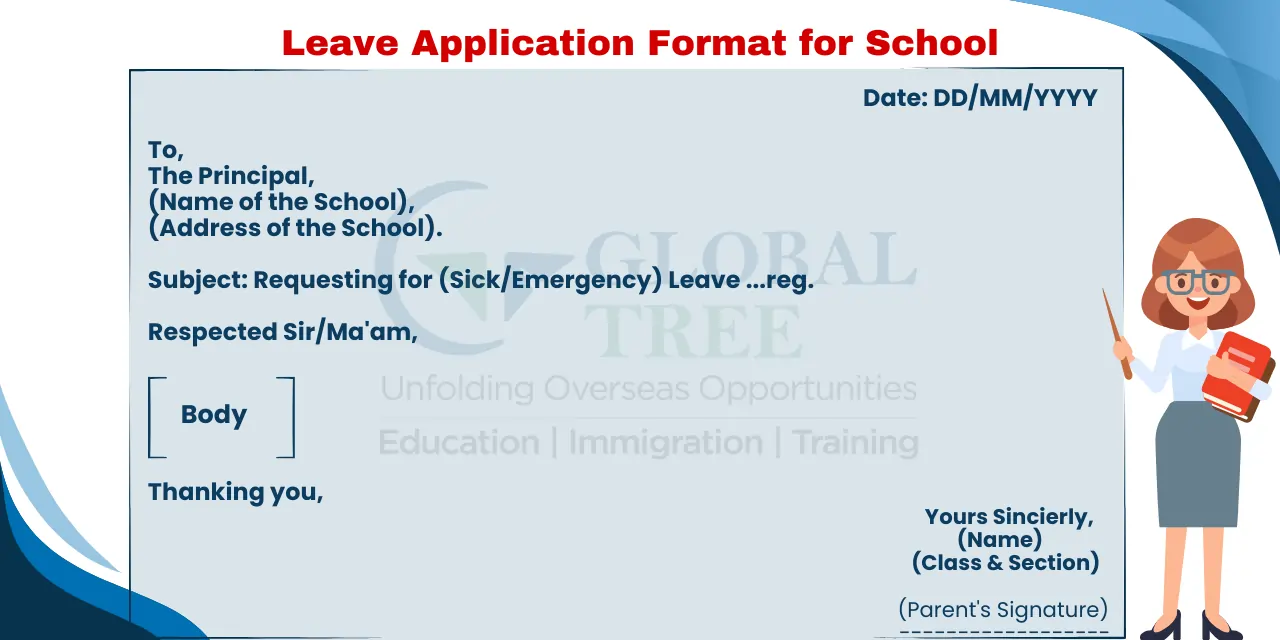HOW TO STUDY FOR LONG HOURS WITHOUT GETTING DISTRACTED?

- Introduction
- Setting the Foundation for Endurance
- Elevating Study Sessions with Enjoyable Elements
- Science-Backed Techniques for Prolonged Focus
- Strategic Study Techniques and Maximizing Productivity
- Ensuring Physical and Mental Well-Being
- FAQ’s
- Conclusion
- 6. Take Breaks in Between
- 5. Turn your Room Study - Friendly
- 4. Exercise every day
- 3. Eat healthy
- 2. Sleep for 7-8 hours
- 1. Prioritise what to study
Introduction
It's important to have the ability to study for longer periods of time without becoming sidetracked in the digital age, as distractions are common and information is easily accessible. With its extensive coverage of the psychological, strategic, environmental, and well-being aspects of sustained focus, this comprehensive handbook seeks to arm professionals and students with a toolkit of tactics. In this extensive guide, we'll delve deep into advanced techniques, scientific principles, and practical tips to help you master the art of prolonged, distraction-free studying at home or in college.
Setting the Foundation for Endurance
1. Setting Realistic and Achievable Goals
- The journey to studying for long hours begins with setting practical goals. It's not just about spending more time with your books; it's about spending that time wisely. We'll discuss the importance of selecting chapters strategically, considering scoring potential, personal interests, and areas that require improvement. Learn how to craft a schedule with achievable tasks, striking the right balance between challenge and manageability.
-
In addition to selecting chapters strategically, it's crucial to incorporate a variety of tasks in your study plan. Mix theoretical reading with practical problem-solving or engage in discussions with peers. This not only keeps your study routine interesting but also enhances your understanding and retention.
2. Mastering the Art of Prioritization
-
Prioritization is a crucial skill when it comes to prolonged study sessions. It's not enough to spend hours studying; you need to spend those hours on the right subjects and topics. Discover how to discern which topics demand more attention, allowing you to tailor your study sessions for maximum impact.
-
An effective technique for prioritization is to categorize topics into three levels: high priority, medium priority, and low priority. Focus more on high-priority topics, ensuring a solid understanding of the fundamentals before delving into less critical areas. This approach not only boosts your overall understanding but also aids in better time management.
3. Crafting the Optimal Study Environment
-
Creating a conducive study environment is essential for minimizing distractions and overcoming boredom. While a quiet room with good lighting is a good start, the optimal study environment goes beyond the physical space.
-
Consider incorporating elements that enhance your focus and motivation. Personalize your study space with motivational quotes, relevant visuals, or even plants. Experiment with different lighting setups to find what works best for you. The goal is to create a space that not only minimizes distractions but also inspires and energizes you.
4. Incorporating Strategic Breaks
-
While studying for extended periods, integrating short breaks becomes a vital component of maintaining focus and avoiding burnout. The Pomodoro Technique, where you work for 25 minutes and then take a 5-minute break, is a popular method. However, the key is to use breaks strategically.
-
During breaks, engage in activities that refresh your mind without causing a significant distraction. Stretching exercises, a quick walk, or even a brief meditation session can rejuvenate your mind without derailing your study flow. Experiment with different break activities to find what works best for you.
(Read More: 6 things to consider while studying abroad)
Elevating Study Sessions with Enjoyable Elements
1. Making Study Time Enjoyable
-
Long study hours don't have to be monotonous. Discover the art of infusing enjoyment into your study routine by incorporating engaging elements. The more you enjoy your study sessions, the more likely you are to stay focused and motivated.
-
One way to make studying enjoyable is to gamify your learning process. Create quizzes for yourself, set challenges, or use educational apps that turn studying into a game. This not only adds an element of fun but also enhances your retention by making the learning experience interactive.
2. Collaborative Learning
-
Explore collaborative learning techniques, such as group study sessions or using learning apps, to add a dynamic and social element to your study routine. While individual study sessions are crucial, collaborative learning can bring a fresh perspective and make the learning process more enjoyable.
-
Consider forming study groups with peers who share similar academic goals. Use online platforms to connect with students studying the same subjects. Collaborative learning not only exposes you to different viewpoints but also provides a support system during challenging study sessions.
3. The Power of Active Studying
-
Transitioning from passive to active studying is a game-changer. Passive studying involves simply reading or listening, while active studying requires engagement and participation. Delve into the importance of taking notes, creating flashcards, and employing memory-enhancing techniques like the memory palace method.
-
Experiment with different active learning techniques to find what resonates with your learning style. For example, try teaching the concepts you've learned to someone else or writing a summary in your own words. The act of engaging with the material actively contributes to better retention and understanding.
Science-Backed Techniques for Prolonged Focus
1.Meditation for Cognitive Enhancement
-
Scientifically proven, meditation contributes to improved focus and cognitive function. Incorporating a daily meditation practice of at least 20 minutes into your routine can enhance mental clarity and resilience during prolonged study sessions.
-
To make meditation a sustainable habit, start with shorter sessions and gradually increase the duration. Experiment with different meditation techniques, such as mindfulness meditation or guided visualization, to find what aligns with your preferences. Consistency is key, so aim to make meditation a regular part of your study routine.
(Read More: Top list of universities that accept Duolingo in the USA)
2. Creating a Personalized Study Schedule
-
Dive into the science behind crafting an effective study schedule. Understand the benefits of personalized timetables, incorporating soothing study music, and utilizing time-blocking techniques. Uncover the intricacies of synchronizing your study sessions with your circadian rhythm for optimal focus and retention.
-
Your study schedule should align with your natural energy peaks. Identify the times of the day when you feel most alert and focused, and schedule your most challenging tasks during these periods. Use the concept of ultradian rhythms to structure your study sessions in alignment with your body's natural cycles.
3. The Role of Physical Exercise
-
Explore the profound impact of regular physical exercise on cognitive function. Engaging in physical activity increases blood flow to the brain, improves mood, and enhances overall cognitive performance. Learn practical tips on integrating physical activity into your routine to boost blood circulation, increase alertness, and mitigate stress – all essential components for sustained focus during long study hours.
-
In addition to traditional exercise, consider incorporating movement into your study breaks. A quick dance session, yoga routine, or even a set of jumping jacks can invigorate your body and mind, making your study sessions more effective.
4. Mindfulness and Stress Management
-
Effective stress management is crucial for maintaining focus and well-being. Discover mindfulness techniques, including deep breathing exercises and progressive muscle relaxation, to cultivate a calm and centred mindset, essential for navigating the challenges of prolonged study sessions.
-
Incorporate mindfulness practices into your daily routine, especially during stressful periods such as exams. Apps and online resources can provide guided sessions, making it easier to integrate mindfulness into your study breaks. The ability to manage stress not only improves your focus but also contributes to better overall mental health.
Strategic Study Techniques and Maximizing Productivity
1. Advanced Techniques for Information Retention
-
Delve into advanced study techniques designed to enhance information retention. Explore the benefits of concept mapping, summarization, and retrieval practice. Learn how to leverage these techniques to not only study for longer hours but also to internalise and recall information effectively.
-
Concept mapping involves visually organizing information, creating a hierarchical structure that highlights relationships between concepts. Summarization requires condensing information into concise summaries, promoting active engagement with the material. Retrieval practice involves actively recalling information from memory, reinforcing long-term retention.
2. Utilizing Technology for Enhanced Learning
-
Explore cutting-edge technologies that can elevate your study sessions. From educational apps to virtual reality tools, discover how technology can make your learning experience more interactive and engaging. Learn to strike the right balance to avoid falling into the trap of excessive screen time.
-
Consider incorporating online platforms that offer interactive study materials, simulations, or virtual labs. Explore educational apps designed to reinforce specific concepts through quizzes and games. Technology can be a powerful ally in your academic journey, provided it is used mindfully and purposefully.
3. Optimizing Memory and Recall
-
Uncover the secrets behind optimizing memory and recall. From mnemonic devices to spaced repetition, explore techniques that can help you commit information to memory more effectively. Understand the science behind these methods and how to incorporate them into your study routine.
-
Mnemonic devices, such as acronyms or rhymes, provide memory aids for complex information. Spaced repetition involves reviewing information at increasing intervals to strengthen memory retention.
Ensuring Physical and Mental Well-Being
1. The Importance of Nutrition
-
Understand how nutrition plays a vital role in sustaining prolonged study sessions. Explore brain-boosting foods and the significance of maintaining a well-balanced diet. Learn practical tips for meal planning and hydration to ensure optimal cognitive function. Studying Dietetics course might help you in learning more about nutrition.
-
Incorporate a variety of nutrients into your diet, including omega-3 fatty acids, antioxidants, and vitamins. Stay hydrated throughout your study sessions, as dehydration can negatively impact cognitive performance. Consider preparing healthy snacks in advance to avoid relying on processed or sugary foods.
2. Sleep Hygiene for Academic Success
-
Delve into the science of sleep and its impact on academic performance. Understand the importance of quality sleep, explore tips for improving sleep hygiene, and learn how to establish a consistent sleep schedule. Discover the link between sleep and memory consolidation.
-
Establish a pre-sleep routine that signals to your body that it's time to wind down. Avoid electronic devices at least an hour before bedtime, as the blue light emitted can interfere with melatonin production. Aim for 7-9 hours of sleep each night, prioritizing both quantity and quality for optimal cognitive function.
3. Balancing Social Life and Academic Commitments
-
Maintaining a balance between social life and academic commitments is essential for overall well-being. Learn how to establish boundaries, prioritize tasks, and make time for relaxation and social interactions. Discover the benefits of a well-rounded lifestyle in sustaining focus and motivation.
-
While academic success is crucial, it shouldn't come at the expense of your mental and emotional well-being. Allocate time for hobbies, socializing, and relaxation to prevent burnout. A balanced life contributes to better focus and increased resilience during challenging study sessions.
(Read More: What are the best places for pursuing Higher Education?)
FAQ’s
1. How can I maintain focus and concentration for long study sessions?
A: Maintaining focus involves a quiet study space, specific goals, time management (like the Pomodoro Technique), eliminating distractions, and engaging in active learning techniques.
2. How can I prevent mental and physical fatigue during long study sessions?
A: Prevent fatigue by taking short breaks, staying hydrated, maintaining a balanced diet, getting enough sleep, incorporating light exercise, and practicing relaxation techniques.
3. How can I make studying for long hours more enjoyable and engaging?
A: Make studying enjoyable by finding a method that suits your learning style, breaking up study material, using technology wisely, studying with a partner, and taking regular breaks.
4. How can longer study sessions be helpful?
A: Longer study sessions allow for better knowledge retention, quicker learning, problem rectification, and identification of weaker concepts. Quality of study is crucial over the quantity of topics covered.
5. Is it advisable to study for long hours at night?
A: It's not advisable to study for lengthy periods at night. Instead, incorporate evening exercise, study with bright lights, keep conversations light, and find what works best for your routine.
Conclusion
As we conclude this extensive exploration of strategies for prolonged focus, it's essential to recognize that mastering the art of studying is a dynamic and ongoing process. The techniques discussed in this guide provide a comprehensive framework for cultivating sustained focus, but each individual's journey is unique. By integrating these strategies into their study routine and adapting them to personal preferences, learners can unlock their full potential and achieve lasting success in their academic and professional endeavours. Remember, the key to mastery lies in consistent practice, a resilient mindset, and an unwavering commitment to continuous improvement. Here's to your journey towards peak productivity and a year of focused accomplishments!
6. Take Breaks in Between
A 10-minute pause is very beneficial. For your intellect to work productively, breaks are crucial. When you study for a long period of time, your memory may suffer and your mind may feel overloaded with knowledge. Follow these above mentioned tips to score high on exams like IELTS.
It takes a delicate balancing act to concentrate and study for extended periods of time. So, in order to get the number, you want, you must establish a routine and strike a balance with your exercise, eating, and sleeping patterns.
5. Turn your Room Study - Friendly
When we say study-friendly, it implies a well-lit room with fewer distractions. Lack of light makes you dull and sleepy, while studying in a well-lit area makes you feel lively and energetic. On your study table, you can also put inspirational quotes, pictures, and other upbeat items to keep you inspired. Make sure there aren't too many diversions in your space.
4. Exercise every day
Regular exercise for 15 to 30 minutes is a good plan. It frees up your emotions, eases stiffness, and gives you energy to last the entire day. According to experts, physical activity causes the brain to produce neurotransmitters that keep it awake and alert. Exercise both awakens the brain and gives you a renewed sense of energy.
3. Eat healthy
When you're studying for exams, you need to be active, so it's a good idea to consume a balanced diet. You often feel sluggish after eating heavy, fatty foods. So, stay away from it when you're trying to learn. Fresh, home-cooked meals are known to boost productivity and mental acuity, particularly when they contain superfoods like berries, fish, nuts, whole grains, yogurt, legumes, tomatoes, etc.
2. Sleep for 7-8 hours
Sleeping for 7-8 hours every night is not fiction. To avoid feeling drowsy while learning, you need to get enough sleep. Giving up sleep to study more and perform better will only have a negative impact on your health and cause tension and anxiety. Additionally, being sleepy makes it harder for you to comprehend things. You could even take a quick nap in between to relax your body and thoughts.
So, it helps in studying for long hours without getting tired.
(Read More: A guide for GMAT exam preparation)
1. Prioritise what to study
You must first and foremost properly set your priorities. Study the most important subjects first, then progressively move on to others. Since what you learn will stick with you for a very long time, try to study with a new mind.



![How to Prepare for Your First Flight: A Handy Guide [2 Minutes Read]](https://globaltree.in/uploadsweb/blog/how-to-prepare-for-your-first-flight-a-handy-guide-2-minutes-read-L-1721998208.webp)

